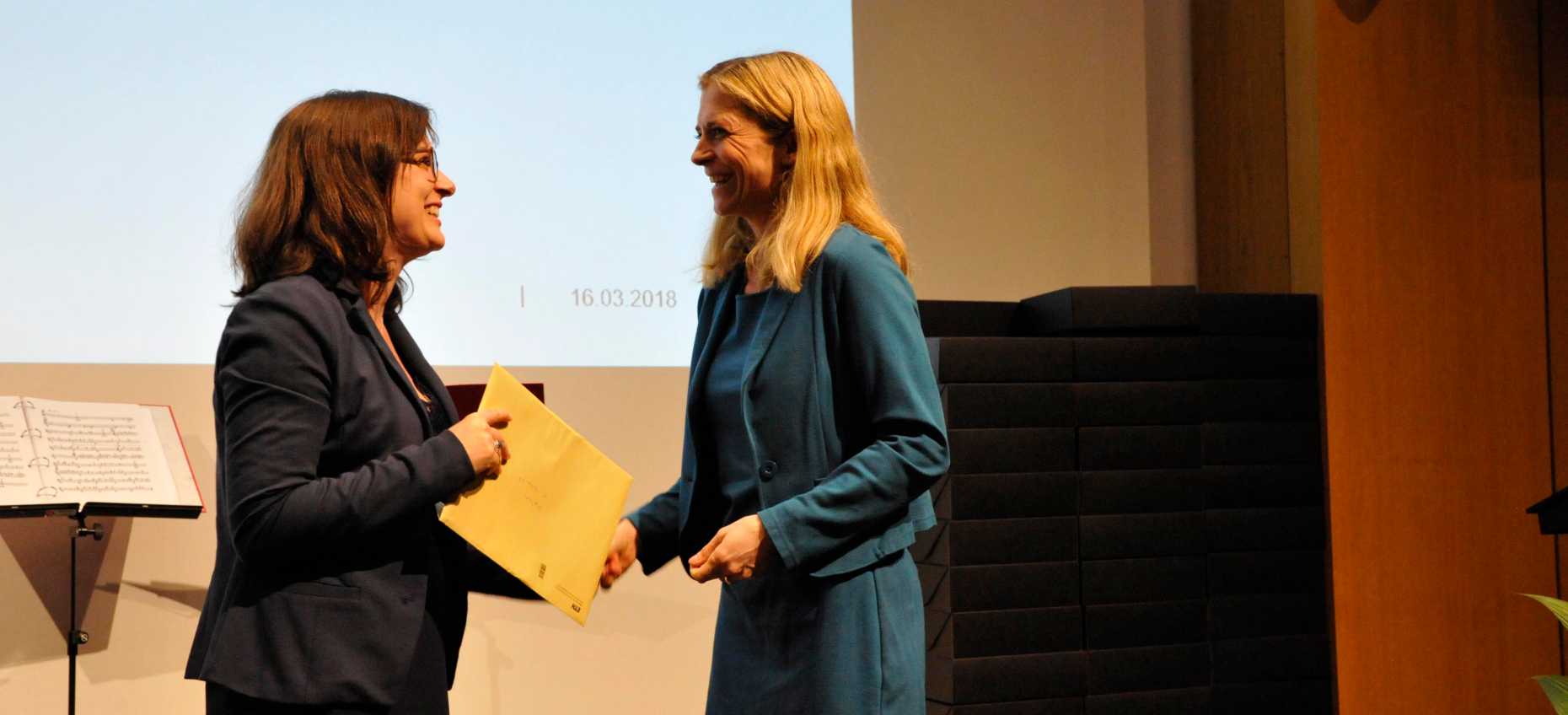Hans Vontobel Award for Agronomy goes to ETH study on «local food»
- D-USYS
- Institute of Agricultural Sciences
- Awards
Emilia Schmitt has written her doctoral thesis in the Sustainable Agroecosystems group at D-USYS under the supervision of Prof. Johan Six. For her thesis, in which she compared local and global food in terms of sustainability, she has received the 30th Hans Vontobel Award for Agronomy.
In her 2018 award-winning dissertation, Emilia Schmitt takes a critical look at locally produced products, especially Swiss cheeses bearing labels such as «from the region» or «AOP» (appellation d'origine protégée). She concludes that the true value of local products cannot be measured only in terms of the distance from where they were produced. Schmitt defines sustainability as encompassing five dimensions: economic viability, environmental integrity, social cohesion, people's health and ethics. In that sense, the classical perception we often have of a product being «from the region» might be too narrow.
Local ist not necessarily better
The net effect on sustainability of local production is influenced by far more factors than merely the work that is done locally, Schmitt continues. In an empirical part of her thesis, Schmitt compares products from Switzerland with corresponding products from England or France. Her conclusion is an attention-getter: Unlike the finished products themselves, many upstream raw materials, such as the feed for the cows whose milk is processed locally, come from much further away. In the case of Swiss cheese production, South Africa is an important supplier of raw materials.
In the future, people concerned about taking local production seriously will need to look more closely at the aggregate of the distances to be added up when taking the entire value chain in consideration. The slogan «the more local, the better» is thus problematic, as long as imported products outperform their domestic products in terms of sustainability.
30 years of Hans Vontobel Award
By 2040, our planet will be home to over 9 billion people. Our most basic need will also be our greatest challenge: How can we ensure that the food resources of the earth will be sufficient for everyone?
The Hans Vontobel Award recognizes doctoral theses that document outstanding findings in the agricultural sciences. They provide crucial impulses in their area of expertise and improve the chance that the agricultural economy can keep up with the food requirements of a growing world population.
Hans Vontobel, who launched the award 30 years ago, was aware that the more sustainable the agricultural sector is, the more we will benefit from its products in the long term. And by "we" he not only had human beings in mind, but the environment as a whole.
Over the course of the past few years, the theses submitted have taken a closer and closer look at issues concerning sustainability. How can the use of fertilizers or pesticides be reduced? How can we productively cultivate the soil over many years? Researchers have sought new cultivation methods, and studied plants, seedlings and animal husbandry with a view to meeting such demands. The short-term goal of maximizing productivity has moved into the background.
References
Schmitt E. Comparing local and global food - A definition framework and sustainability assessment. Doctoral thesis. 2017.
external page https://doi.org/10.3929/ethz-b-000000089
Hans Vontobel Award for Agronomy goes to ETH study on «local food» - external page Video and news from 13 April 2018
Sustainable Agroecosystems Group of ETH Zürich
